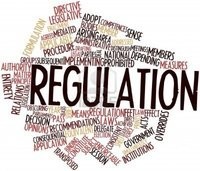The Sustaining Generic Medicines Markets in Europe report (April 2006), produced by the Research Centre for Pharmaceutical Care and Pharmaco-economics and authored by Professor Steven Simoens and Ms Sandra De Coster, offers a country-by-country analysis of generics markets in Europe and discusses factors both hindering and aiding the development of generics markets.
In the report, countries are grouped according to the status of their generics market, as being either developing or mature. Mature markets are those where generics substitution by pharmacists is common, physicians look favourably upon generics, and/or policy exists supporting a generics trade. For the purposes of grouping, however, the authors use the criterion of a generics market share exceeding 40% as the critical factor meriting inclusion in the mature generic medicines markets.
The table depicts strengths and weaknesses of policy tools in mature generic medicines markets.
Further details on each country, including a detailed account of their generics markets and specific advice, may be found in the report.
Table: Strengths and weaknesses of policy tools in mature generic medicines markets
| Country
|
Strengths
|
Weaknesses
|
| Denmark
|
-The RPS and generics substitution by pharmacists reward generics companies that set competitive prices for an active substance with high sales -Physicians tend to have a favourable attitude towards generics substitution by pharmacists and face non-financial incentives to prescribe generics
|
-Strong price competition and low prices could endanger the long-term sustainability of the generics industry
|
| Germany
|
-Market entry of generics benefits from an RPS that sets higher RPs in medicine groups with fewer generics competitors and that stimulates price competition, but still makes it possible for generics companies to earn profits -Demand for generics is driven by generics substitution by pharmacists and by physician budgets in combination with prescription targets and feedback on prescribing behaviour
|
-Pharmacists are financially penalised for dispensing generics
|
| The Netherlands
|
-The financial attractiveness of generics substitution by pharmacists sustains generics use -The generics market is driven by the lower prices of generics -A range of financial and non-financial incentives for physicians support generics prescribing -Health insurance funds have agreed [to] generics substitution target rates in consultation with pharmacists
|
-Patients have few incentives to buy generics
|
| Poland
|
-The economic viability of the generics market originates from low prices and high volume of consumption -Setting the RP at the level of the cheapest medicine has led to low prices of generics -The high volume of consumption derives from the positive experience of physicians with generics and the high level of patient co-payments
|
-Physicians have no incentives to prescribe generics -Pharmacists are financially penalised for dispensing generics
|
| United Kingdom
|
-Generics companies compete with each other on price, enabling the NHS to capture the cost-saving potential of generics -Medical students are taught to prescribe by INN and INN prescribing by physicians is common practice -Generics prescribing has been stimulated by setting physician budgets in combination with generics prescribing targets, incentive schemes, and prescribing guidelines
|
-Patients have no incentives to buy generics
|
INN: International Non-Proprietary Names; RP: reference price; RPS: reference-pricing system
Based on the Sustaining Generic Medicines Markets in Europe report (April 2006). Strengths and weaknesses presented in the report were used to summarise the key factors aiding or hindering the development of the generic medicines market in that country.
Related articles
Savings from generic medicines use
Recommendations to strengthen generic medicines markets
Policies that advance the use of generic and biosimilar medicines
Recommendations for developing generic medicines markets
Recommendations for mature generic medicines markets
Strengths and weaknesses of developing generic medicines markets
Overview of the Sustaining Generic Medicines Markets in Europe
Reference
Simoens S, De Coster S. Sustaining Generic Medicines Markets in Europe. April 2006.








 0
0











Post your comment